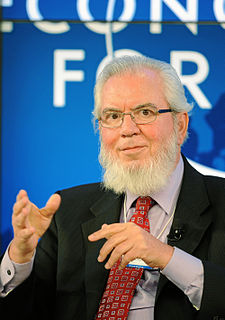A Quote by Julia Gillard
As our economy faces up to potential labour shortages due to our ageing population and as it moves to a new level of sophistication to compete with the rest of the world, we're going to need every Australian on board pulling their weight, rejoining the workforce, gaining new skills. Writing off individuals and communities suffering from poverty just creates a dead weight for our economy to drag along.
Quote Topics
Ageing
Along
Australian
Board
Communities
Compete
Creates
Dead
Drag
Due
Economy
Every
Faces
Gaining
Going
Individuals
Just
Labour
Level
Moves
Need
New
New Level
New Skills
Off
Our
Population
Potential
Poverty
Pulling
Rejoining
Rest
Shortages
Skills
Sophistication
Suffering
Up
Weight
Workforce
World
Writing
Related Quotes
The chief moral obligation of the 21st Century is to build a green economy that is strong enough to lift people out of poverty. Those communities that were locked out of the last century's pollution-based economy must be locked into the new, clean and renewable economy. Our youth need green-collar jobs, not jails.
There is a section of our population in South Africa that you can't expect to get integrated in the economy of its own. These are people without skills and that will include young people who might very well have matric certificates, but don't have the skills to be absorbed in the economy. So we need to target people like those in a special way, in a focused way so that they have the skills and the capacity to participate in the economy. That requires special programmes.
We are not going to have a situation where our education spending goes back to its lowest level since the year 2000 despite a larger population and more kids to educate. We know that the single most important thing in terms of how well we can compete around the world is the quality of our workforce. We can't do that to our kids.
Embracing a low carbon economy will be as momentous as the previous industrial revolutions. As the shift from coal to oil did. And the shift from gas light to electric light. It has the potential to give us the competitive edge in the new global economy. The scale of the challenge is extraordinary. We will need to reinvent in the way we live our lives, the way our world works
Nearly one billion women and men, a third of the world's workforce, are either unemployed or unable to earn enough to keep themselves out of extreme poverty. There are 100 million new entrants into the labour market each year. Up to 90 percent in some regions are in the informal economy. 180 million kids are engaged in the worst forms of child labour. Put it all together and it is not only morally unacceptable, but politically dangerous











































